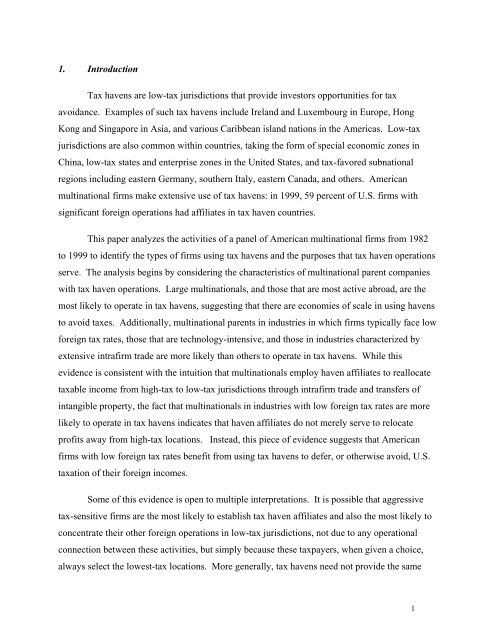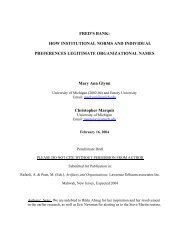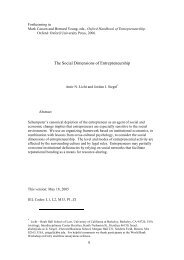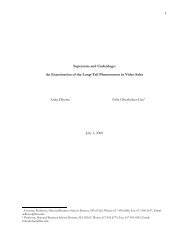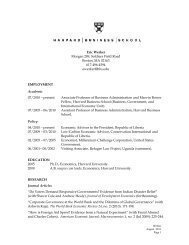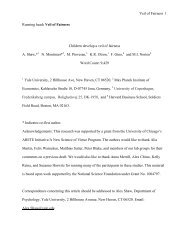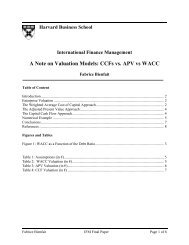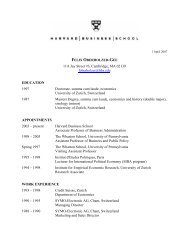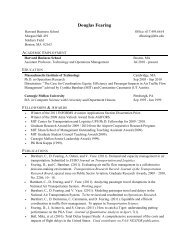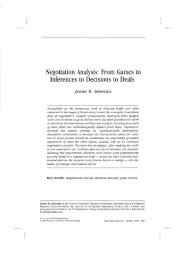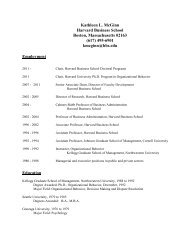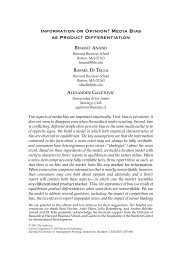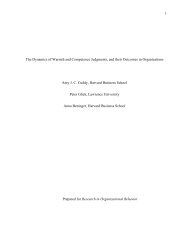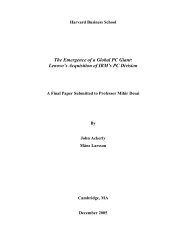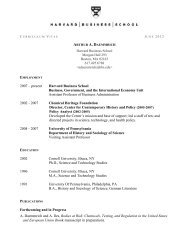The Demand for Tax Haven Operations - Harvard Business School
The Demand for Tax Haven Operations - Harvard Business School
The Demand for Tax Haven Operations - Harvard Business School
You also want an ePaper? Increase the reach of your titles
YUMPU automatically turns print PDFs into web optimized ePapers that Google loves.
1. Introduction<br />
<strong>Tax</strong> havens are low-tax jurisdictions that provide investors opportunities <strong>for</strong> tax<br />
avoidance. Examples of such tax havens include Ireland and Luxembourg in Europe, Hong<br />
Kong and Singapore in Asia, and various Caribbean island nations in the Americas. Low-tax<br />
jurisdictions are also common within countries, taking the <strong>for</strong>m of special economic zones in<br />
China, low-tax states and enterprise zones in the United States, and tax-favored subnational<br />
regions including eastern Germany, southern Italy, eastern Canada, and others. American<br />
multinational firms make extensive use of tax havens: in 1999, 59 percent of U.S. firms with<br />
significant <strong>for</strong>eign operations had affiliates in tax haven countries.<br />
This paper analyzes the activities of a panel of American multinational firms from 1982<br />
to 1999 to identify the types of firms using tax havens and the purposes that tax haven operations<br />
serve. <strong>The</strong> analysis begins by considering the characteristics of multinational parent companies<br />
with tax haven operations. Large multinationals, and those that are most active abroad, are the<br />
most likely to operate in tax havens, suggesting that there are economies of scale in using havens<br />
to avoid taxes. Additionally, multinational parents in industries in which firms typically face low<br />
<strong>for</strong>eign tax rates, those that are technology-intensive, and those in industries characterized by<br />
extensive intrafirm trade are more likely than others to operate in tax havens. While this<br />
evidence is consistent with the intuition that multinationals employ haven affiliates to reallocate<br />
taxable income from high-tax to low-tax jurisdictions through intrafirm trade and transfers of<br />
intangible property, the fact that multinationals in industries with low <strong>for</strong>eign tax rates are more<br />
likely to operate in tax havens indicates that haven affiliates do not merely serve to relocate<br />
profits away from high-tax locations. Instead, this piece of evidence suggests that American<br />
firms with low <strong>for</strong>eign tax rates benefit from using tax havens to defer, or otherwise avoid, U.S.<br />
taxation of their <strong>for</strong>eign incomes.<br />
Some of this evidence is open to multiple interpretations. It is possible that aggressive<br />
tax-sensitive firms are the most likely to establish tax haven affiliates and also the most likely to<br />
concentrate their other <strong>for</strong>eign operations in low-tax jurisdictions, not due to any operational<br />
connection between these activities, but simply because these taxpayers, when given a choice,<br />
always select the lowest-tax locations. More generally, tax havens need not provide the same<br />
1


